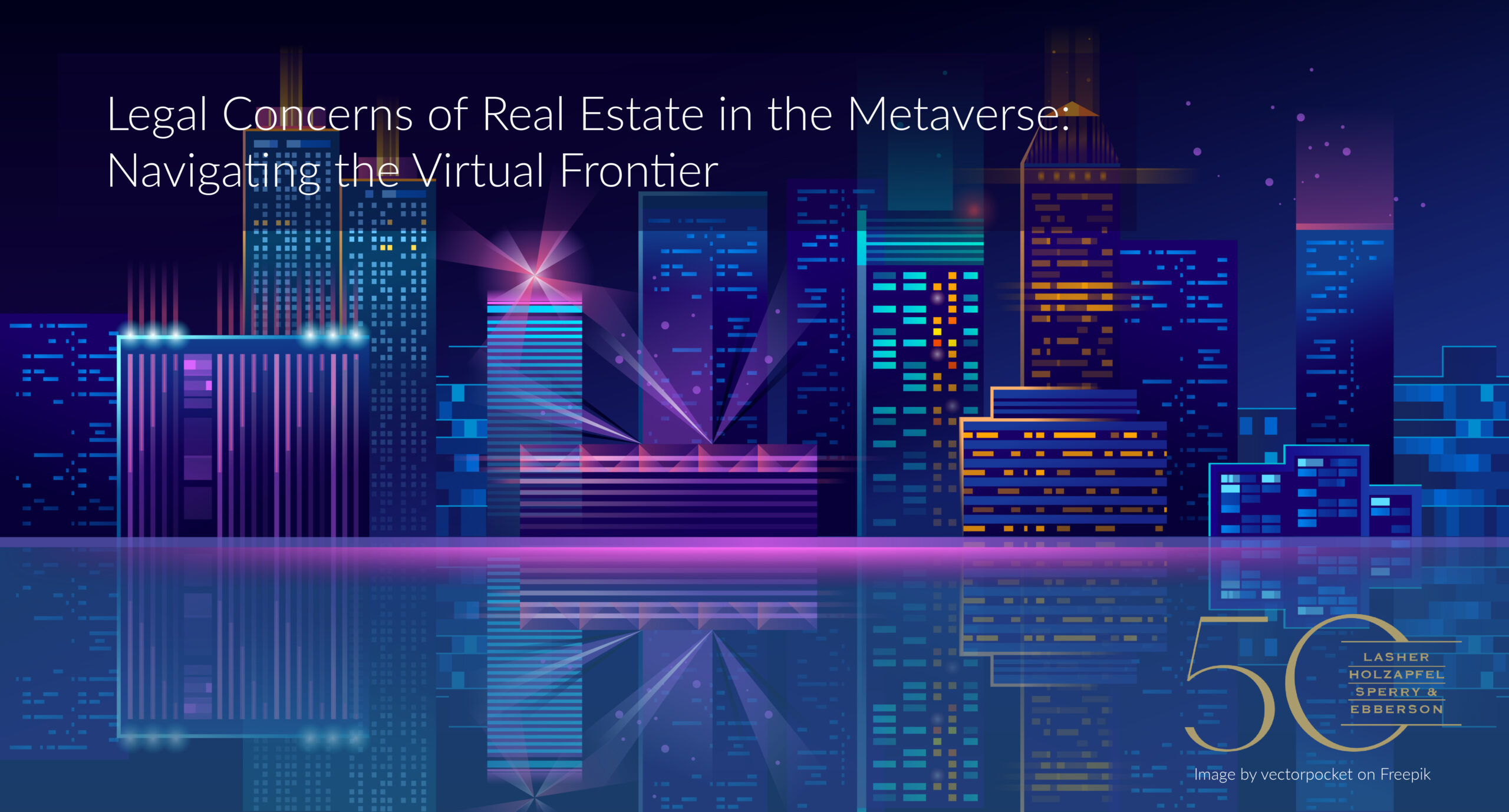Legal Concerns of Real Estate in the Metaverse: Navigating the Virtual Frontier

Posted on April 25, 2023 by Kelly Rutledge
The concept of the metaverse, a virtual world where users interact with digital environments and each other in immersive ways, has gained significant attention in recent years. With advancements in virtual reality (VR) and augmented reality (AR) technologies, the metaverse is becoming more accessible and has the potential to revolutionize various industries, including real estate. However, as virtual real estate transactions become more prevalent, legal concerns arise, and navigating the legal landscape of the metaverse becomes a crucial aspect for stakeholders to consider.
One of the primary legal concerns of real estate in the metaverse is property rights. In the physical world, property ownership is well-established through deeds, titles, and other legal documents. However, in the metaverse, ownership of virtual real estate is often defined by digital assets, such as Non-Fungible Tokens (NFTs), which represent unique digital properties. NFTs are cryptographic tokens that can be bought, sold, and traded on blockchain platforms, providing proof of ownership and authenticity for digital assets. However, the legal status of NFTs and virtual property rights are still evolving and may vary across jurisdictions, leading to uncertainty.
Another concern is contract enforcement and execution. Virtual real estate transactions often involve the use of smart contracts, which are self-executing contracts programmed with blockchain technology. Smart contracts can facilitate virtual property sales, leases, and other transactions without the need for intermediaries. However, issues such as contract formation, performance, and enforcement in the metaverse may raise legal questions, as traditional contract laws may not fully apply to digital transactions. For example, disputes arising from smart contracts in the metaverse may require the interpretation of complex code and may be subject to different legal jurisdictions.
In addition, virtual real estate often includes digital assets, such as virtual buildings, landscapes, and other creative elements, which may be protected by copyright, trademark, or other intellectual property laws. However, the virtual nature of these assets presents challenges in terms of ownership, licensing, and infringement. For instance, unauthorized copying or use of virtual assets may occur in the metaverse, and identifying and enforcing intellectual property rights in the virtual world can be complex.
Transactions in the metaverse may also involve the collection and processing of user data, such as personal information and virtual activities, which raise privacy and security concerns. Virtual worlds may also involve user-generated content and social interactions, which can create legal challenges in terms of user consent, data storage, and third-party liability. Additionally, virtual real estate may be subject to virtual property tax or other regulatory requirements, which may involve the collection and use of user data.
Like many other digital realms, the metaverse may be vulnerable to hacking, fraud, and other cybersecurity risks, as they involve digital assets and transactions conducted in a virtual environment. Virtual properties can be hacked, stolen, or manipulated, leading to significant financial losses. Therefore, ensuring the security and integrity of virtual real estate transactions is a critical legal consideration in the metaverse.
As the metaverse continues to evolve, legal frameworks and regulations are also being developed to address the legal concerns of real estate in the virtual world. Virtual worlds are not bound by physical boundaries, and users from different countries may interact in the same virtual environment. This can raise questions about which legal system applies to virtual real estate transactions, as laws and regulations may vary across jurisdictions. Conflicts of laws, jurisdictional disputes, and international legal issues may arise, requiring careful consideration and resolution in the metaverse.
If you have questions about real estate and property rights, the Real Estate lawyers at Lasher can help.

